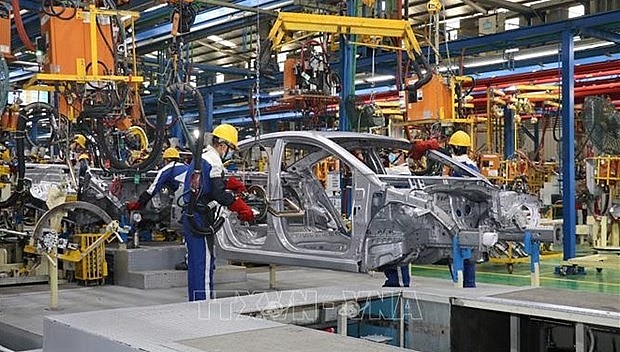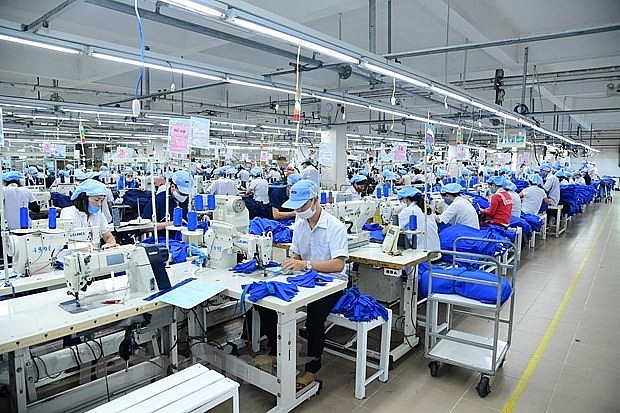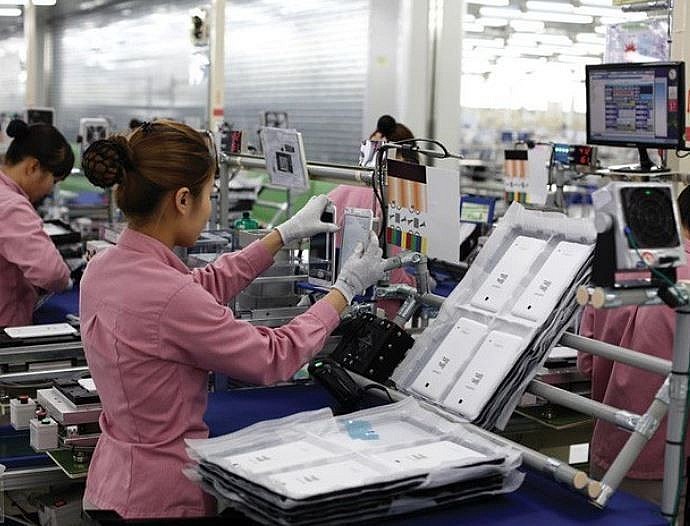 |
| Vietnam’s 11-month IIP estimated to increase by 8.6%. Photo: VNA |
Business Insider said China’s rise as the world’s factory spanned four decades and ushered in an era of globalization and integrated supply chains.
That facade started to crumble around 2018 after President Donald Trump launched a trade war against the East Asian giant. This, in turn, has prompted investors to reassess their geopolitical risks.
While some investors did move parts of their manufacturing facilities out of China at the time, it was the pandemic — and China’s zero-COVID policy — that drove home the importance of not depending on one country for manufacturing needs.
President Joe Biden hasn’t put the kibosh on the elevated tariffs Trump imposed on China — in fact, in October, he imposed export controls on shipping equipment to Chinese-owned factories making advanced logic chips. This further burdened a strained relationship.
“To navigate this complicated web of US-China trade tensions, multinationals are now more than ever, looking to hedge their business risks,” the magazine stressed.
Business Insider then named five countries which are increasingly picking up China’s supply chains, including Vietnam.
According to the US outlet, Vietnam has been undergoing rapid economic reforms since 1986, with these changes yielding significant returns.
 |
| Key Vietnamese strengths are in the manufacturing of apparel and footwear, as well as electronics and electrical appliances. Photo: VNA |
It quoted the World Bank’s post in November as saying that the reforms have yielded results which have propelled Vietnam from “one of the world’s poorest nations to a middle-income economy” in one generation.
In 2021, Vietnam attracted over $31.15 billion in foreign-direct-investment pledges — up more than 9% from the prior year, according to the country’s Ministry of Planning and Investment. About 60% of the investments went into the manufacturing-and-processing sector.
Business Insider noted that key Vietnamese strengths are in the manufacturing of apparel and footwear, as well as electronics and electrical appliances.
“Apple has already moved some iPhone manufacturing to Vietnam and is planning to move some of its MacBook production to the Southeast Asian nation,” it added.
Other companies that have shifted some of their production lines out of China to Vietnam are Nike, Adidas, and Samsung, the article said.
Vietnam’s index of industrial production (IIP) in the first 11 months of 2022 is estimated to increase by 8.6% year-on-year, doubling the 4.2% of the same period last year, the General Statistics Office (GSO) unveiled.
 |
| Vietnam attracted a total of $27.72 billion in FDI as of December 20. Photo: Cong thuong (Industry & Trade) newspaper |
In the reviewed period, the processing and manufacturing industry grew by 8.9%, contributing 6.8 percentage points to the overall growth; electricity production and distribution by 7.7%, contributing 0.7 percentage point; water supply, waste, and wastewater treatment and management activities by 7.1%, contributing 0.1 percentage point; and the mining industry by 6.5%, contributing 1 percentage point to the overall increase.
VietnamPlus cited a report by the Ministry of Planning and Investment showing that Vietnam attracted a total of $27.72 billion in FDI as of December 20, equal to 89% of the figure of the same period last year,
Specifically, there were 2,036 newly-registered FDI projects worth $12.45 billion, up 17.1% year-on-year in the number of projects, but down 18.4% in value.
Meanwhile, 1,107 projects had their capital adjusted, with a total amount of $10.12 billion, up 12.4% and 12.2% year-on-year, respectively.
There were also 3,566 capital contributions and share purchases with a total amount of $5.15 billion, down 6.1% and 25.2%, respectively./.






